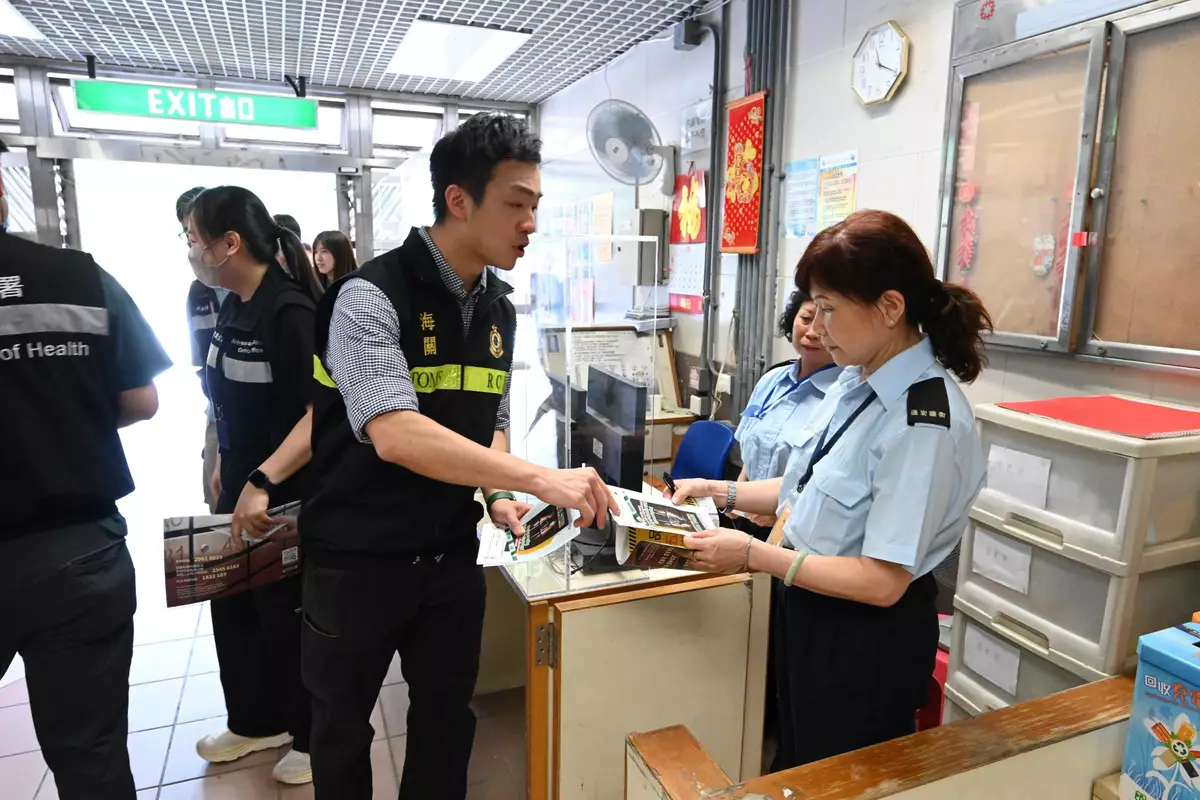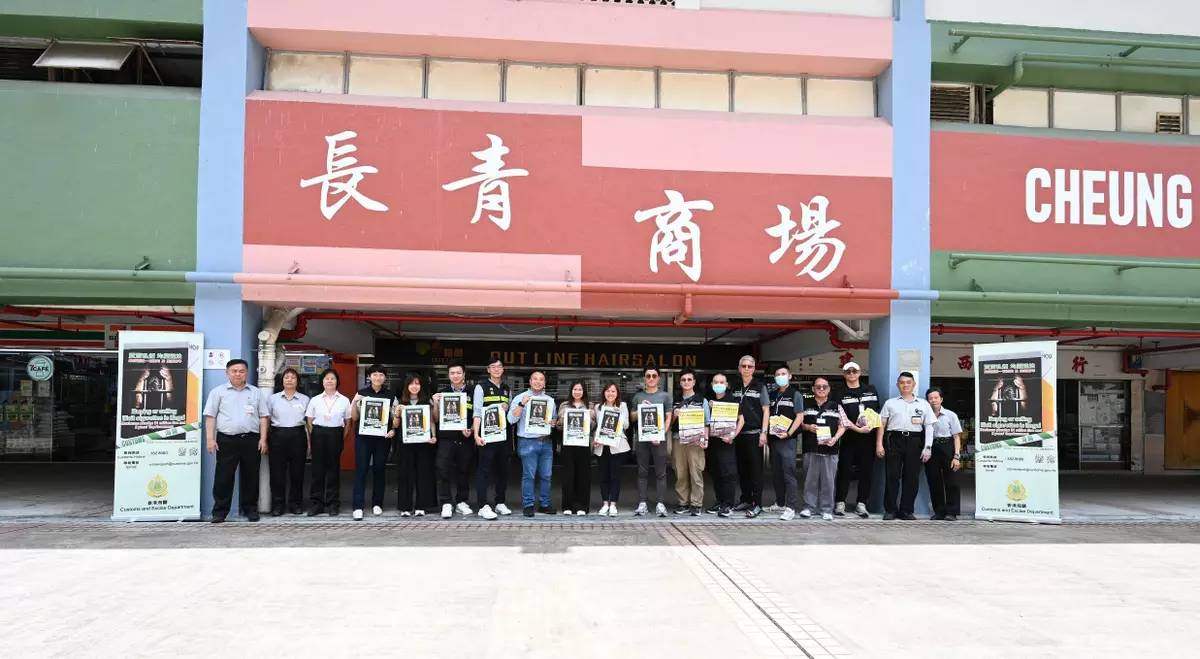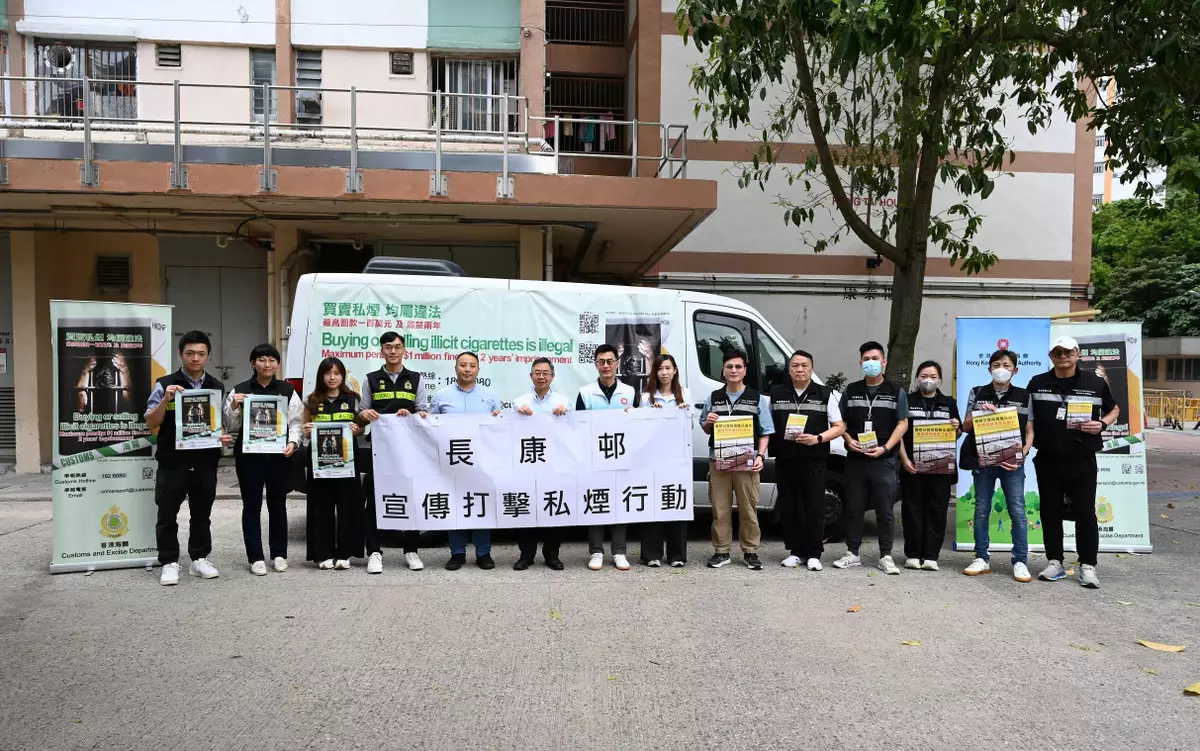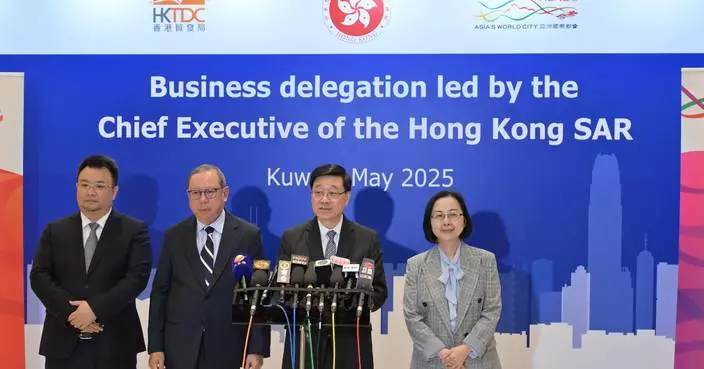CHP announces one new confirmed melioidosis infection case over past week
The Centre for Health Protection (CHP) of the Department of Health today (January 3) said that one new confirmed melioidosis infection case had been recorded in the past week (December 27, 2024, to January 2, 2025).
The case involves a 72-year-old male with underlying illnesses who lives in Sham Shui Po. He developed fever and cough on December 13, 2024. He attended Caritas Medical Centre and was admitted the next day. His clinical sample was confirmed positive for Burkholderia pseudomallei upon testing.
The CHP is investigating the infection source of the case. Epidemiological investigations are ongoing.
A total of 23 melioidosis infection cases were recorded last year (2024).
A spokesman for the CHP stressed that person-to-person transmission and animal-to-human transmission are rare, but melioidosis bacteria can survive in the local environment. Melioidosis is an endemic disease in Hong Kong and melioidosis cases have been recorded in Hong Kong each year.
According to literature, infection cases are more common after typhoons or storms. The bacterium Burkholderia pseudomallei of melioidosis in soil and muddy water may become exposed to the ground after typhoons or storms, and the bacteria could spread more easily with strong winds or storms. As such, the number of melioidosis cases may increase.
With this in mind, the spokesman reminded members of the public that, where practicable, people should stay indoors during typhoons and storms, avoid travelling to areas with potential flooding, and do not wade in or have contact with muddy water and soil. In addition, high-risk individuals should avoid paths near stormwater drains where aerosols may be generated from contaminated water.
Members of the public should also take the following preventive measures against infection:
Avoid contact with contaminated soil;
Wear appropriate protective clothing or footwear when participating in activities with possible contact with soil or water, e.g. using gloves and wearing boots. High-risk individuals may also consider wearing a surgical mask;
Wash or shower after exposure to contaminated water or soil;
Always clean any wounds as soon as possible and cover any cuts or grazes with waterproof dressings;
Wash hands with liquid soap and water after handling soil or gardening;
Observe food hygiene and avoid drinking raw water; and
Travellers can contract the disease through outdoor water sports. Risk of infection can be minimised by avoiding exposure to water sources (such as rivers, ponds or lakes) that might be contaminated.
The CHP appealed to members of the public to seek medical advice if they develop symptoms, in particular people with diabetes or other immunocompromised conditions, in order to receive an appropriate medical diagnosis and treatment. For more information on melioidosis, please visit the website of the CHP atwww.chp.gov.hk/en/healthtopics/content/24/101110.html.
Hong Kong Customs conducts interdepartmental anti-illicit cigarette publicity activities in Tsing Yi
Hong Kong Customs conducted a joint anti-illicit cigarette publicity campaign with members of the Kwai Tsing District Council, the Tobacco and Alcohol Control Office (TACO) of the Department of Health and the Housing Department (HD) at Cheung Hong Estate and Cheung Ching Estate in Tsing Yi today (May 15).
Customs officers promoted anti-illicit cigarette messages to residents, traders and security personnel at the Estates, including the Government's proposal to make amendments to the existing legislation to increase penalties for illicit cigarette-related offences, and also encouraged them to report suspected illicit cigarette trading activities to Customs.
If public rental housing units are found to be involved in illicit cigarette crimes, Customs will notify the HD for follow-up action after the conclusion of court proceedings. Customs reminds members of the public, especially young people, not to buy or sell illicit cigarettes or distribute illicit cigarette leaflets to avoid creating a criminal record that could affect their future.
Customs will continue its risk assessment and intelligence analysis for interception at the source, as well as through its multipronged enforcement strategy targeting storage, distribution and peddling, to spare no effort in combating illicit cigarette activities. Also, Customs will strengthen publicity and education to remind the public not to take part in unlawful acts related to illicit cigarettes.
In accordance with the Dutiable Commodities Ordinance, anyone involved in dealing with, possession of, selling or buying illicit cigarettes commits an offence. The maximum penalty upon conviction is a fine of $1 million and imprisonment for two years. Members of the public may report any suspected illicit cigarette activities to Customs' 24-hour hotline 182 8080 or its dedicated crime-reporting email account (crimereport@customs.gov.hk) or online form (eform.cefs.gov.hk/form/ced002).
In accordance with the Smoking (Public Health) Ordinance (Cap. 371), no person shall distribute any smoking product advertisement (including any promotion leaflets). Any person who contravenes the regulation is liable to a maximum fine of $50,000. Members of the public may report any suspected activities of illicit cigarette leaflets distribution to TACO's hotline 2961 8823.

Hong Kong Customs conducts interdepartmental anti-illicit cigarette publicity activities in Tsing Yi Source: HKSAR Government Press Releases

Hong Kong Customs conducts interdepartmental anti-illicit cigarette publicity activities in Tsing Yi Source: HKSAR Government Press Releases

Hong Kong Customs conducts interdepartmental anti-illicit cigarette publicity activities in Tsing Yi Source: HKSAR Government Press Releases



















































